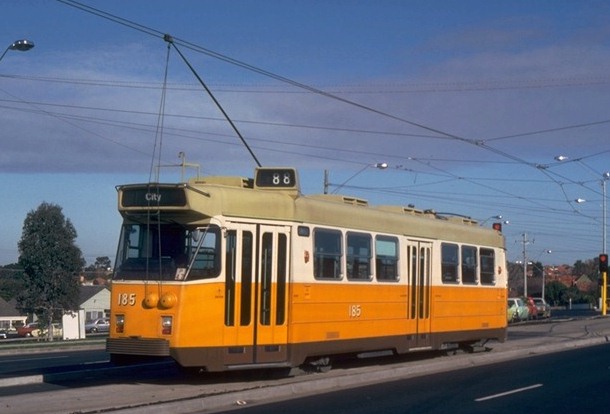 by Dave Riley
by Dave RileyI have written in the past on traffic, transport and urban development issues for Green Left Weekly especially as they impact here in South East Queensland.
Here's a few samples:The tragedy is that since I last wrote journalism on the topic, back in 2004, conditions have got worse. (What,does no one listen to me?) They've got worse even though we have creepy Climate Change bearing down on us.

At present here in town, Brisbane is experiencing a council election.
Brisbane is a big city in that it is a very large municipality which runs many important utilities such as water and a major bus service(still, fortunately, in public hands).
At this election we are being prevailed upon to vote for a perspective that registers support for 350 new buses(promising more frequent bus services of course) and "tunnels" -- tunnels under the CBD and the Brisbane River being the preferred fix it for the city's traffic congestion problems.
Nowadays buses are sold as environmental goodies -- but really, have you ridden in a suburban bus? The problem with a bus is that its a very big car. Maybe a big car with lots of passengers -- but a thing with wheels and an internal combustion engine nonetheless.
And this big car travels on the road like any other car. This means that your everyday bus is held hostage to the same traffic congestion as the family sedan.While there have been a few initiatives with transit lanes on some major routes (for buses as well as cars with passengers) the bus is still being engineered as something that shares the road and used the same bitumen grid as any other thing on pneumatic tires. In practice that means that buses will never run to a consistent schedule because they are a victim to the same traffic conditions that impacts everything else on the road.
I think that's absurd. Granted that a bus carries more commuters than a car, what are supposed to be the advantages of traveling by bus over the same route you could travel by car?
You get to listen to your iPodWe could list myriad reasons that make a lot of sense in a subjective sort of way but ultimately a bus is still a big car that won't get you from A to B with any more speed or any more convenience than the standard sedan.
You can read the latest pulp fiction or the daily news.
You can talk on your mobile phone.
You don't have to find a place to park at the other end....
And that's the core problem.
As petrol pr
 ices go up -- the bus looks a better option assuming ticket prices are low (or as the Socialist Alliance demands, lets' make travel free). People can do the maths.
ices go up -- the bus looks a better option assuming ticket prices are low (or as the Socialist Alliance demands, lets' make travel free). People can do the maths.But will I get to work or school or whatever any more conveniently?...And the answer is likely to be no.
Buses are useful as feeders over short distances -- to the railhead for instance -- but if we are going to bus it up in any big way buses have to be allocated their own dedicated traffic lanes. There is simply no other way to proceed. Thats' what getting serious about public transport and greenhouse gas emissions requires.
But here's the rub: if you are going to dedicate lanes absolutely to buses -- then bring back the trams. A tram line is a dedicated bus lane run by electricity and trams carry more passengers than buses.
Brisbane did away with its trams in the 1960s.
Myth: Trams are inflexible and hold up traffic, and should be replaced with buses.My point you see, is that buses are a "lesser evil" they do not address the core problem much at all.Bus travel is merely a means to pass in the left lane under the presumption that you'll get there by some other means (for reasons best known to yourself). You may be moving 30-35 people on that bus but are they going to always choose that route as the preferred transit between A and B?
Fact: The main thing holding up traffic is other traffic, not trams. Wherever buses have replaced trams patronage has dwindled, putting more cars on the roads and adding to traffic congestion. Read more...
Therefore, "public transport" may be all well and good as a sort of generic slogan but I think the ready deference to bus transit is a mistake. If we are comparing buses to trams (or comparing buses to trams and trains) we are referring to different animals with very different impacts on this road traffic beastie. The main game has to be about getting cars off the road in the massive percentiles required. And "more buses" -- even "350 more buses" -- is a coward's journey which won't get us anywhere near our preferred destination.
